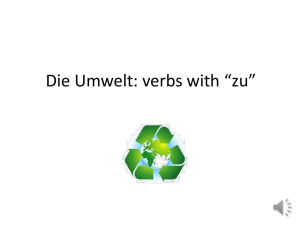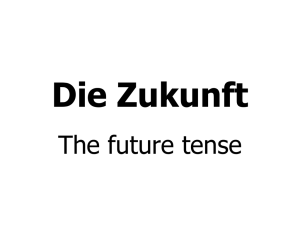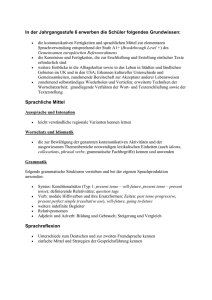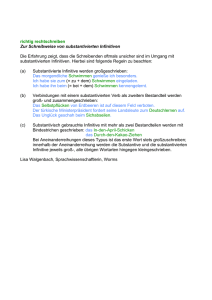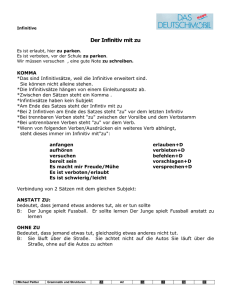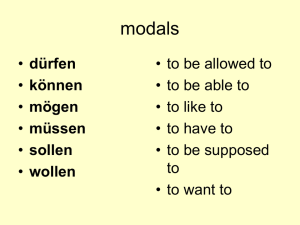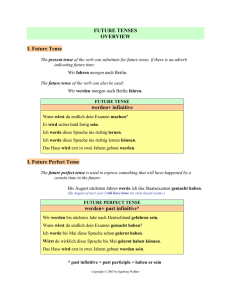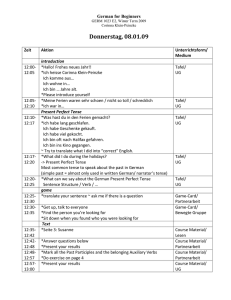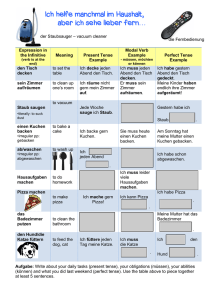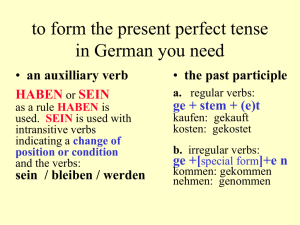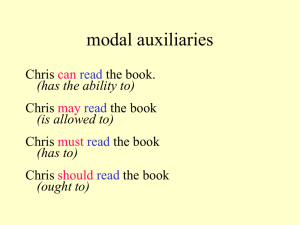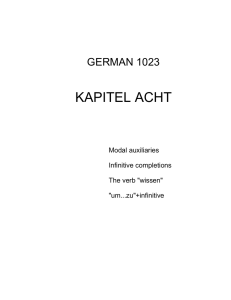Kapitel 1
Werbung
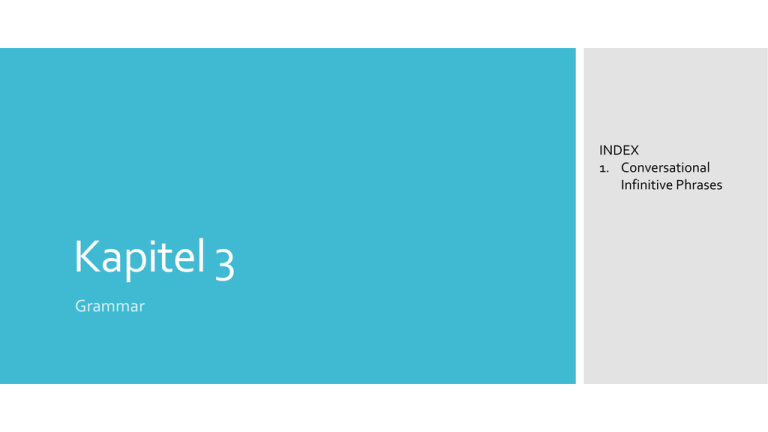
INDEX 1. Conversational Infinitive Phrases Kapitel 3 Grammar 1. Auf Klebepapier schreib was du erinnerst über Deutsche Verben 2. Notizen über Present Tense in Englisch 3. Vollständige Aktivität A auf s. 61 (allein) 4. Mit ein Partner überprüfe deine Arbeit Verbs, Present Tense (Review) 5. Notizen über Present Tense in Deutsch 6. Vollständige Aktivität B auf s. 61 (allein) Obj. What are Verbs in the Present Tense again? 7. Mit ein Partner überprüfe deine Arbeit 8. In eine Gruppe diskutiere was du gelernt hast und was du immer noch nicht verstehst 9. Vollständige Aktivitäten C-B auf s. 62(allein) 10. Mit ein Partner überprüfe deine Arbeit. 11. Diskutiere was du gelernt hast und wie (KWLA/WICOR) An infinitive is an unconjugated verb usually preceded by the word to: Auf Englisch To help To go To be An infinitive phrase consists of an infinitive together with its modifiers and complements. I am trying to help you. We are ready to go home now. I plan to study German tonight. Vollständige Aktivität A auf s. 127 (allein) Compare the English and German sentences. How is the Englisch “to” expressed? Auf Deutsch I am trying to help. Ich versuche zu helfen. I am trying to help you. Ich versuche, dir zu helfen. We are ready to go home now. Wir sind bereit, jetzt nach Hause zu gehen. I plan to study German tonight. Ich habe vor, heute Abend Deutsch zu lernen. I exercise a lot in order to stay fit. Ich mache viel Sport, um fit zu bleiben. In German infinitive phrases, the infinitive is always preceded by zu and is placed at the end of the sentence. Ich versuche zu helfen. If the infinitive is a verb with a seperable prefix, such as mitmachen, zu is inserted between the prefix and the verb. Ich habe vor mitzumachen. When any other words are added to the infinitive, a comma precedes the infinitive clause. Ich habe vor, heute Abend Deutsch zu lernen. Ich habe keine Zeit, meine Eltern vom Flughafen abzuholen.
